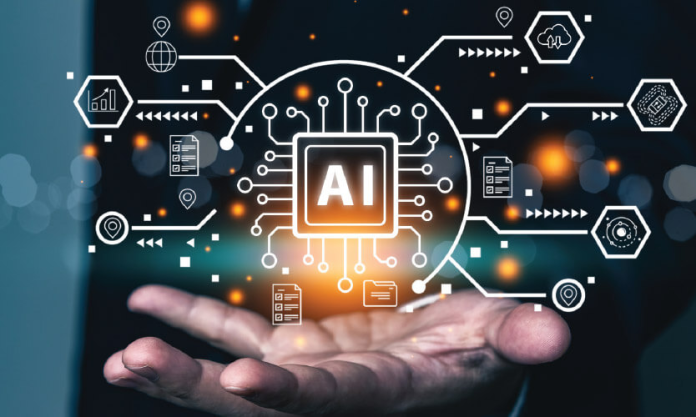By: Larzsolice Aarend
As Africans, it is easy to feel disillusioned when we look at the state of our continent. It is exhausting to see our potential perpetually hampered by stagnation. While every nation in Africa achieved political independence, starting with Ghana in 1957, indigenous languages and cultures are still marginalised in favour of a Western model – despite the spectacular decline of the West! The grand future that we were promised after independence, our African Renaissance, seems to have been postponed indefinitely…
It is easy, and often feels justified, to point fingers at our politicians, but we should not be too harsh on them. Politics is the art of having problems, and so political franchises are built around problems, not solutions. It is the nature of the game. Because of this, we never stop waiting for solutions from the political sphere, which they simply cannot deliver unless it is demanded loudly enough by the People.
The solution was never meant to come from the top, hope lies in our own hands! The path to the African Renaissance is genuine, it is achievable, and it is far easier than we might have thought, but it will not come unless we demand it.
Historically speaking, the Italian Renaissance started when classical texts were translated into Italian, allowing for the establishment of Mother-Tongue Universities (MTUs). This led to an intellectual and cultural revolution that swept across Europe. Other European nations saw this and started building their own MTUs, resulting in the European Enlightenment. The highest level of cultural maturity and intellectual power is reached when a people can govern, study and innovate in their own languages. We are fortunate that Artificial Intelligence (AI) is now good enough to make the required translation projects quick and easy.
Ghana was the first sub-Saharan African nation to achieve independence, and then demanded political liberation for the entire continent. Kwame Nkrumah insisted that Ghana’s freedom was intrinsically linked to Africa’s total emancipation. Unfortunately, while the political chains have largely been shed, a critical aspect of true sovereignty remains unaddressed: intellectual liberation. Establishing Mother Tongue Universities is the next step in the African Renaissance, and Ghana is in a position to take the lead once again.
The main obstacle for Mother Tongue Universities in Africa used to be the language barrier: Africa has many languages, and so the project would have taken too much time and money. However, modern AI is good enough that the language barrier has evaporated. Having many languages is now an advantage because of the broad base that can be uplifted through establishing MTUs. It is now easy and quick to translate books, or even conversations, from one language to almost any other. An African Renaissance that is driven by MTUs that use AI as an integral part of how they are established also opens the door for Africa to enter the global AI market. Mother Tongue Universities are therefore our gateway to the Fourth Industrial Revolution.
The way forward involves four steps: establishing a legislative mandate, mobilising experts for the translation project, establishing the AI infrastructure and workflows, and establishing MTU syllabuses that incorporate AI courses.
- Legislative Mandate: We must demand that our politicians adopt laws that mandate the establishment of Mother-Tongue Universities. Every time you talk about MTUs as a means of triggering the African Renaissance, our collective voice gets louder. If our collective voice gets loud enough, the politicians will step in and take over. Therefore, each of us has the power to force a legislative mandate, by increasing the volume of our collective voice. We have already tried waiting, now we must demand it.
- Expert Mobilisation: Once the mandate is set up, governments will need to mobilise a team of experts in every field to supervise the translation program, including inventing new words when needed. The textbooks they produce need to be certified, and so the credibility of the project rest on the shoulders of these heroes.
- AI Infrastructure & Workflows: these teams of experts will have to include developers and trainers for AI models, and governments can take advantage of the competition between China and America to strike deals or partnerships that contribute AI expertise, or computational resources, to the MTU projects.
- Establishing Syllabuses: Once textbooks are certified, MTUs need to establish courses that they can use for an initial offering. This needs to include courses on AI so that graduates can feed back into AI Infrastructure and Workflow development. This feedback loop is crucial if we want to couple the establishment of MTUs with Africa’s rise as a major player in the future of AI.
Ghana’s historical role as the “Black Star” that lit the path to political liberation now stands at the precipice of a new, equally historic opportunity. A renewed call for intellectual liberation is not merely cultural idealism; it is a pragmatic strategy for Africa’s development and global positioning. Ghana led the political liberation of Africa, and so Ghana is perfectly placed to lead Africa’s intellectual liberation as well. The time for Kwame Nkrumah’s next phase is now!
The taking advantage of recent advances in AI to establish MTUs presents a concrete pathway towards the long-awaited African Renaissance. It offers Ghanaians, and all Africans, a renewed sense of purpose: to innovate in their own tongue, thus commanding their intellectual destiny themselves. The time for dreaming is done. Now the future is knocking on our doors…
The African Renaissance does not begin in a government ministry, but in the collective voice of every African. Your voice matters… Start the conversation!
Demand the Legislative Mandate online: #MTU #AfricanRenaissance
Source: newsghana.com.gh











